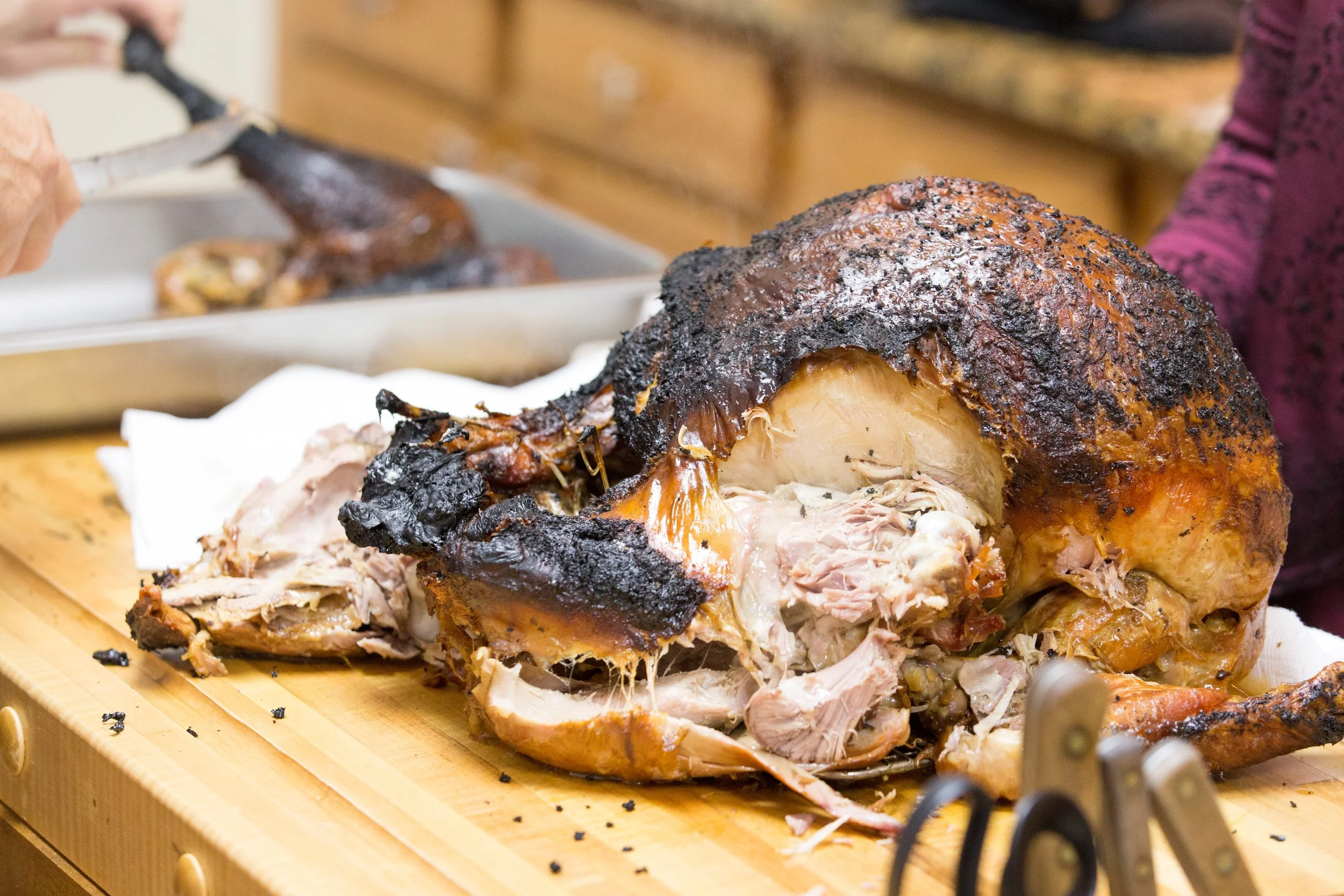A Stoic’s Thanksgiving
Riding out the disappointments of the holidays with ancient wisdom
Personally, I’m a big fan of Halloween. But I know lots of people look forward to the November and December holidays with total glee.
All that excited anticipation – the parties, the meals, the time away from work – can cause us to idealize what is in store over the coming weeks.
Now, I certainly don’t want to be a party-pooper – but there are bound to be bumps in the road. The turkey might burn. Maybe a storm cancels your flight. Your car might break down on the way to the Black Friday sales.
A lot of us let these mishaps upset us… potentially ruining the valuable time we need to recharge our batteries, enjoy the company of friends and loved ones, and live in the moment. Ruminating over setbacks can also crowd out any positive thoughts… as I know only too well.
A couple of winters ago, I was making the most of an unexpected day off. I had big plans for the holidays - a family party, tons of cookies to bake - and so I wanted to get some errands out of the way.
I was headed out to grab a few bottles of wine, when I slipped on some ice… and broke my kneecap. I was strapped into a brace and confined to my sofa for weeks. My holiday season was pretty much wrecked. And that’s when I came back to the Stoics.
I already knew vaguely about this ancient school of thought – but as I sat feeling sorry for myself, propped up by pillows reading The Stoic Challenge by Bill Irvine, I realised how much this philosophy can teach us about happiness today.
The Stoics – Greek and later Roman thinkers who lived 2,000 years ago – are sometimes portrayed as advocates of us all shutting down our emotions. In reality, they embraced the good emotions - like amusement and joy. But they also wanted to reduce the impact that negative emotions such as anger and frustration have on our happiness.
I was pretty bummed when I broke my kneecap. Aside from the pain and discomfort, I felt stupid for slipping on the ice in the first place; sad that all my fun plans were cancelled; and guilty for the impact my immobility would have on my husband, friends and family.
The Stoics would say all these emotions were a waste of my mental energy. I had to stop asking: “Why me?”
“If I expect to get up and go through my day without anything bad happening, I'm a fool.” Bill Irvine – professor of Philosophy at Wright State University.
Now, you should obviously take reasonable measures to avoid mishaps (“If you never check the gas gauge in your car, you're to blame and shame on you,” says Bill), but sometimes bad things are just unavoidable. And how you react to events that are out of your control is a key lesson of the Stoics.
“You've got a very interesting choice of whether you're going to play the role of victim or play the role of target,” says Bill. “And it's a huge psychological difference.”
Imagine that somewhere the Stoic gods are hatching plans to throw obstacles in your path – breaking your stove as you put the turkey in, or burning out your fuse just when you plug in your holiday lights – how will you react?
A “victim” might get super angry (possibly ruining the holiday mood for everyone around them) or they might withdraw into self-pity and sadness.
A “target” on the other hand looks at such setbacks as a challenge to relish – like a daily crossword or Sudoku puzzle . “Targets” see problems as way to improve their coping skills and deal with challenges with good humor and a certain excitement.
I’ve personally found this Stoic way of reframing the small problems we face each and every day to be really useful. So no matter what troubles and inconveniences the Stoic gods throw at you this holiday season, I hope you too can meet them without all those negative emotions. Because - even though it’s no Halloween - this really can be a time of year to embrace and savor.
Stay well,
Laurie
